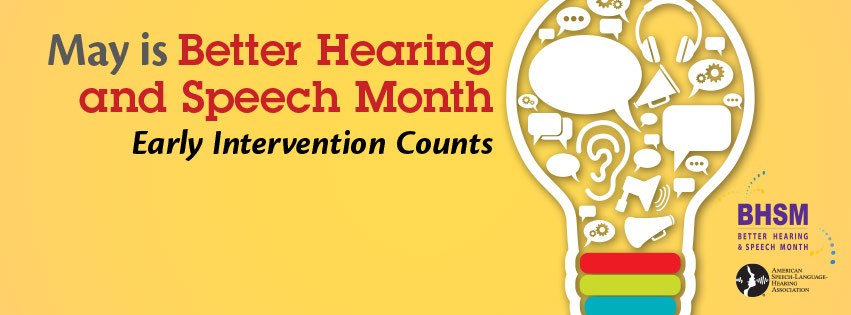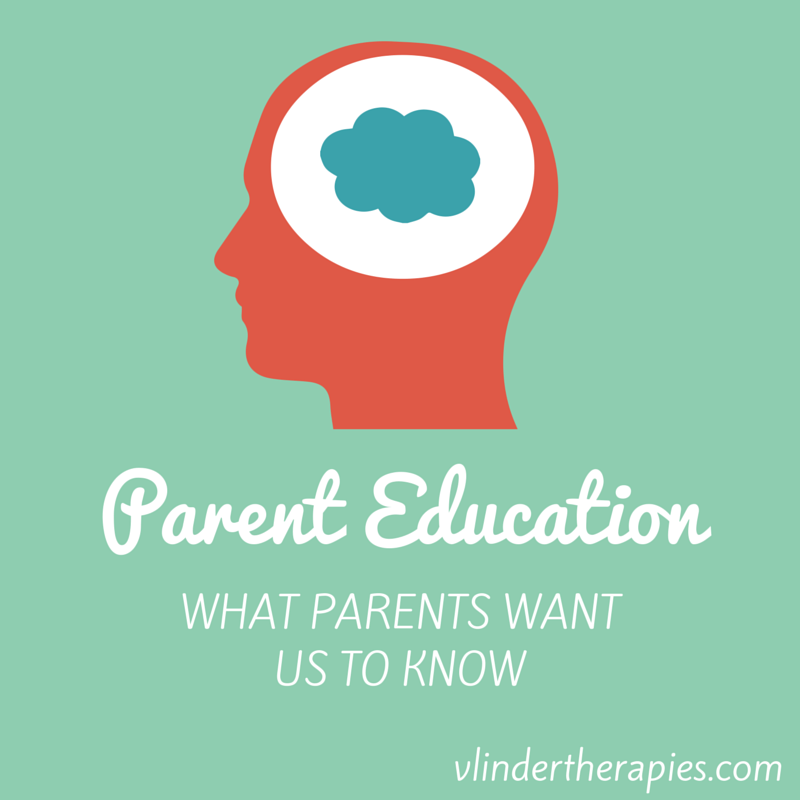#BHSM: Parent Education (Early Intervention Counts!, part 2)

Last week, I started a blog series for Better Hearing & Speech Month (#BHSM) on what parents wished they had known sooner. In preparation for writing my BHSM newsletter this year, I posed the following questions to parents of children already receiving speech-language services: What do you wish you had learned sooner? What do you wish others understood? Three themes emerged in their responses. You can read about the first theme in my post #BHSM: Early Intervention Counts! This week, I want to focus on the second theme: parent education.

For a long time, I thought the goal was collecting words. So I created elaborate spreadsheets listing each word I heard my child say. I didn't understand that the real goal was functional communication; that being able to say the word was completely different from being able to use it functionally. I wish I had had a better up-front understanding of what speech is, what language is, and what functional communication is (that they are all different). I wish I had known the real goal sooner.
I wish ...
- that I had known that echolalia is not a typical way kids learn to talk.
- that I had better understood scripting early on; that it can be a tool my child sometimes uses to communicate.
- that I had been aware of the other resources available, not just the "typical" referrals given to everyone or just the large clinics in the city.
- that I had known how to use the games/toys we already had around to support my child's speech and language development.
- that parent education/training was easier to locate/obtain.
Wow. This one had me doing a lot of self-reflection. It seems as a profession we have much room to improve in the area of parent education.
I work in private practice and see children in my office. I typically encourage parents to remain in the room while I work with their child so they can see what (and how) we are doing. In many cases (especially for kids with more involved needs) I actively involve the parent in therapy to provide opportunities to coach them and to help them feel confident in implementing programs and strategies outside of therapy. I also tell parents that other team members (e.g. behavior specialists, care providers, etc.) are always welcome in our therapy sessions. Teaming with parents (and other team members) results in much more effective intervention for the child. This spring, I wrote up information on several programs/techniques for a particular client to share with other team members what (and how) we had been working on in therapy. Some I shared via my blog. In the process of writing, I realized there have been times I had not done a stellar job of explaining to the parent why I was doing what I was doing in therapy. I was modeling how and explaining what I was doing, but didn't ensure that the parent understood the why. When the parent read the blog post and commented that she hadn't really "gotten it" until reading the post, my realization was confirmed.
I would have to say just the vast importance of the partnering with your child. Having a good bond and working on a program rather than trying band aid the communication process by anticipating is important.
As providers, I think we try to not overwhelm parents (after all, they are often already overwhelmed). Or we think someone else will provide them the information. Or we assume they already know/have already been told. Or we tell them once but forget that they may need to hear it multiple times (and possibly in different ways) before they understand. Or we wait for them to ask the question. Or we get so caught up in figuring out what is going on with the child and how to best work with the child, that we forget the parents are our clients, too.
We need to educate and empower parents.
Check back next week for my blog post on the last theme: augmentative/alternative communication (AAC)!
You might also like the following posts:
Apraxia, Fluency, Voice, on my! The S in SLP
Receptive, Expressive; Oral, Written - The L in SLP
Putting it all together: Communication
 Sunday, May 17, 2015 at 12:13AM
Sunday, May 17, 2015 at 12:13AM  Post a Comment →
Post a Comment →  BHSM,
BHSM,  early intervention,
early intervention,  parent education | in
parent education | in  BHSM
BHSM
Reader Comments